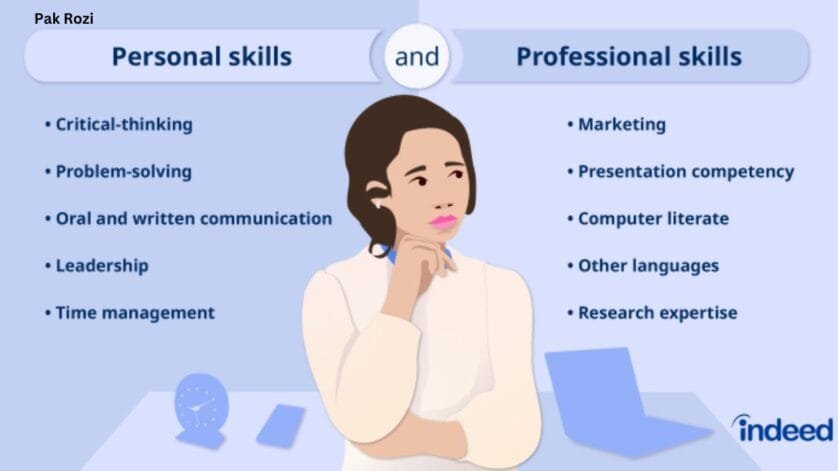Today, with much competition in the job field, the applicants normally opt to make a dilemma concerning whether they should write of Skills vs Experience on the resume and application forms. While both play a considerable role in showing qualifications for the position, there usually is a difference in the two aspects as each goes with different things that relate to the particular job or industry. The following points discuss the relevance of each of these two: skill versus experience as job applicants try to understand which one of these two they would use on their application form.
Table Of Contents
What Are Skills And Experience
Skills are the abilities and competencies that enable a person to perform specific jobs. Experience is the hands-on application of these skills in a work context.
- There are two categories for skills: technical (programming, for example) and soft (communication, for example).
- Experience can come through previous employment, internship experience, or work projects.
Why Do You Need Skills
Skills are very fundamental because they indicate what the candidate can do and in what ways they can contribute to an organization. In most cases, employers seek candidates who have some skills that the company requires.
- Skills are one’s ability to do certain things effectively.
- They are obtained through education, training, and practice.
The Value Of Experience
Experience provides some perspective to the skills a candidate may possess, in this case, demonstrating how one has used those skills to produce results in the real world. Most employers tend to favor experience-related candidates because it indicates that industry standards and practices are not alien.
- Experience provides evidence of past success in any role or field.
- Experience proves that a candidate can cope with dynamics and challenges at the workplace.
When Skills Come First
There are some industries or entry-level positions where skills can outweigh experience. This is more so in fields that involve very technical knowledge or certifications.
- Jobs in the tech field often tend to favor coding skills over a work history.
- Employment that is of entry level may have more dependence on potential and skill acquisition rather than past experience.
When Experience Matters Most
In many cases for higher ranks or more technical lines, it’s a matter of experience rather than just skills. The ability to solve tough problems and proven records of success are valued.
- A person is usually qualified to take up a leadership position if he has had more significant previous experience.
- The healthcare and finance fields demand much more experience according to their practice.
Balance Between Skills To Experience
Skills must be combined with experience within the perfect resume. Each individual should thus attempt to come up with an all-around view of the qualifications when presenting this factor.
- Show adaptability and versatility because a balance represents this.
- It increases your chances because you’ll get to open up the market for employment opportunities.
Skills-Based Resumes
A skills-based resume format is useful for lesser-experienced candidates or someone looking to change careers as it puts skills in front. This format ensures one’s capabilities are portrayed quite effectively.
- Skills-based resumes highlight relevant abilities rather than job titles.
- They prove ideal for a career switch into a new industry and profession.
Experience-Based Resumes
Traditional resumes based on experience are old-fashioned and focus on work history. They are best for people with a lot of experience in a particular area, if they wish to show career advancement.
- These types of resumes have jobs listed chronologically, focusing on achievements.
- They are best for professionals who want to showcase a rich work history.
Role Of Networking Skills Vs Experience
Networking can be a bridge between skills and experience. Connections in the industry you are interested in can lead to opportunities for gaining experience and developing the skills.
- Networking can be a way to mentorship and guidance.
- It also opens doors to internships or entry-level positions.
Continuous Learning and Development
Continuous learning can help candidates acquire skills as well as experience. They must learn new things through courses, workshops, or job training.
- Lifelong learning ensures the candidates will remain relevant to the field.
- This will demonstrate the commitment that the employer has towards professional growth.
Exhibiting Skills And Experience In Interviews
Prepare to discuss the skills you have as well as the experience you’ve gained in interviews. The best way to effectively describe how both contribute to your qualifications is by using specific examples.
- Use the STAR method-Situation, Task, Action, Result-to help organize responses
- Prepare to provide examples of how your skills have been used in past experiences.
Conclusion
In brief, experience and skill shall both take their part but as long as they participate in a good job application and the importance may be different according to the types of jobs or industries. To this effect, job seekers must have an equal experience brought into the limelight while at the same time having one aspect most appropriate to a given job with qualifications as the sum total. Applying for jobs through tailored resumes and interviews preparation helps them better suit themselves for the employer in terms of their skills and experiences.
FAQ’s
What’s more important, skills or experience?
It is still job-dependent whether to highlight your skills or experience. While for entry-level positions or specific technical ability needs, skills are very important, for senior roles that require proven track records, experience is crucial. Ideally, a balance of both represents a well-rounded candidate.
Why is it important to highlight your skills?
It is important to demonstrate your skills, for the skills reveal one’s ability to do certain jobs or add up to the achievement of an organization. One can easily find better opportunities for interviewing and securing employment by developing skills that make you stand out from other applicants.
